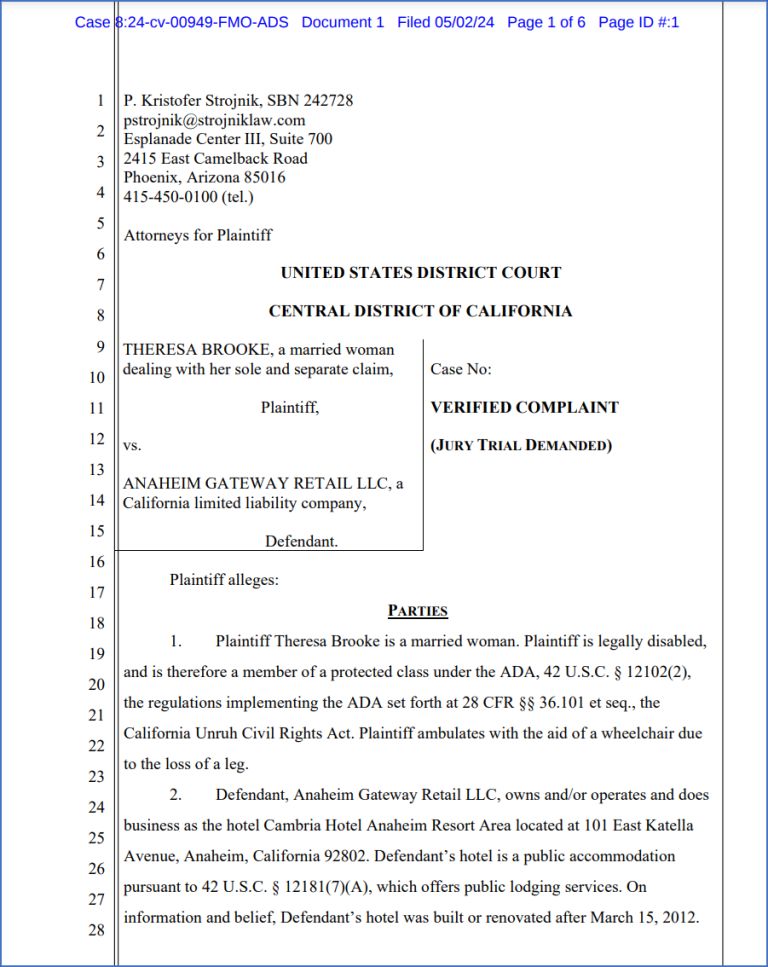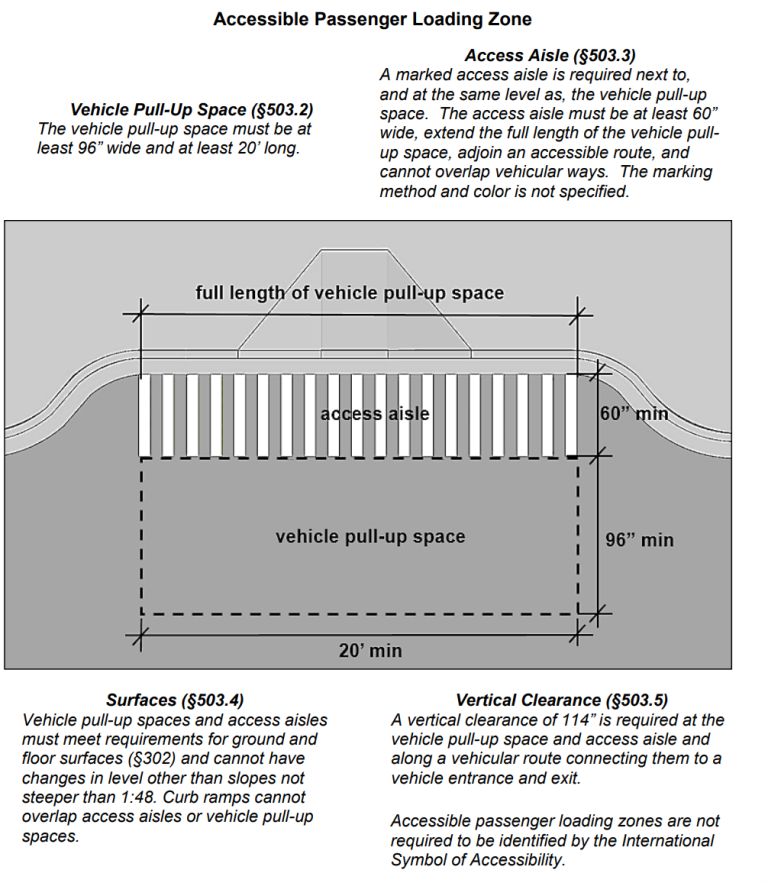Peter Strojnik (AKA P. Kristofer Strojnik) is an attorney based out of Phoenix, Arizona who files many accessibility lawsuits on behalf of his client, Theresa Brooke. According to publicly filed litigation documents, the office is located on East Camelback Road in Phoenix. Peter Strojnik has years of experience filing these types of cases against businesses and landlords regarding alleged violations of the California Unruh Civil Rights Act and Americans with Disabilities Act (ADA).
Each lawsuit generally includes a summons as a cover page informing you that you have been sued and must respond. It also contains the "VERIFIED COMPLAINT" with "Jury Trial Demanded," which generally looks something like this:

The complaints usually state in the first paragraph that "Plaintiff Theresa Brooke is a married woman. Plaintiff is legally disabled, and is therefore a member of a protected class under the ADA."
It might further state under the "Allegations" section that "Plaintiff alleges that Defendant's hotel does not have a compliant access aisle at the passenger loading zone adjacent to the hotel lobby in violation of Sections 209 and 503 of the 2010 Standards."
There are specific accessibility requirements applicable to most businesses and places open to the public as outlined in the ADA and California law. These are provided in detail within the 2010 ADA Standards published by the Department of Justice (DOJ). A passenger loading zone is not always required under the ADA. Where passenger loading zones are provided, at least one accessible passenger loading zone is required in every continuous 100 linear feet of loading zone or fraction thereof. Compliance is required only where areas are specifically designed or designated for passenger loading, such as those at airports, many hotels, and convention centers. But it's important to note that not all areas designated for a brief stop constitute passenger loading zones. There are specific measurements and details applicable when accessible passenger loading zones are required.

If you or your business is named as a defendant in one of these lawsuits, the first thing you'll need to do is respond to the complaint within 21 days of being served with the lawsuit if filed it is filed in federal court, such as the US District Court, Central District of California. If filed in California state court (e.g., Superior Court of California for the County of Los Angeles), that number is 30 days from service. Otherwise, the plaintiff can request a default judgment be entered against you by the court for failure to respond.
Often it is best to file an answer to the complaint that addresses each allegation in the complaint with an admission or denial as well as asserting relevant affirmative defenses, such as statute of limitations or standing issues.
In some cases, it is best to fight back by filing a motion to dismiss when there are grounds to have the lawsuit thrown out by the judge. Be sure to hire experienced ADA/Unruh counsel to represent you and advise you on the viability of defending the lawsuit on the merits.
Your legal counsel can help you determine if the claims alleged in the complaint are valid and what your options are in response. Some lawsuits lack merit and can be defended or dismissed by the court. See my articles on these topics:
How To Defend An ADA Or Unruh Lawsuit For Lack Of Standing by Stuart Tubis
California Unruh Civil Rights Act Law Basics by Stuart Tubis
If there is liability and affirmative defenses don't apply, you can consider a possible settlement of the lawsuit. The goal of this approach is to negotiate the best possible terms given the facts and circumstances of the case. We always seek to lower the settlement amount for our clients as much as possible, provide plenty of time to update the property, and obtain a full release of liability with complete dismissal of the lawsuit. Other protections are also negotiated as part of settlement. In settlement negotiations, resolving the lawsuit in the most efficient and effective way possible is the goal.
The content of this article is intended to provide a general guide to the subject matter. Specialist advice should be sought about your specific circumstances.


